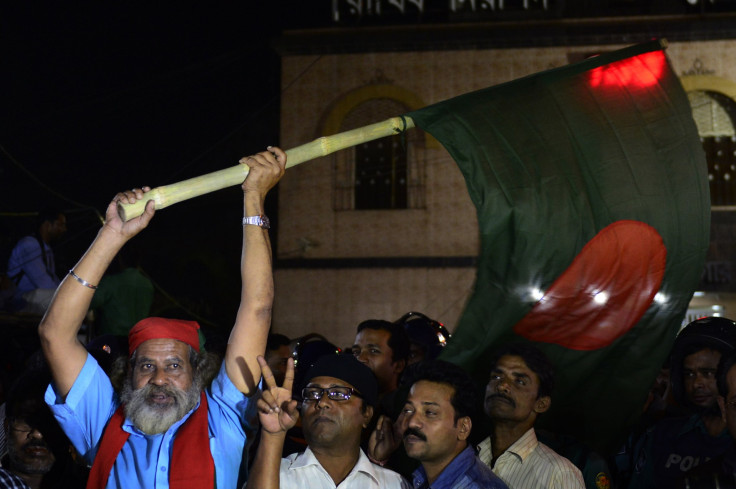Bangladesh Upholds Death Sentence For Islamist Party Head Over 1971 War Crimes

Bangladesh’s highest court upheld the death sentence for the leader of an Islamist party for committing war crimes during the 1971 independence struggle, reports said Wednesday. Motiur Rahman Nizami, head of the country’s largest Islamist party, Jamaat-e-Islami, had filed an appeal against the death sentence that was announced after his conviction last year.
Nizami was convicted of 16 charges — including genocide, murder, torture, rape and destruction of property — by a special tribunal dealing with war crimes. The rejection of his plea removes the last legal hurdle before he is executed, unless he receives presidential clemency — which seems unlikely — according to the Associated Press (AP). The tribunal on war crimes was set up by Prime Minister Sheikh Hasina in 2010. Nizami was a cabinet minister during former Prime Minister Khaleda Zia’s term from 2001 to 2006.
“The court upheld the death sentence in three out of four charges. We’re very happy,” prosecutor Tureen Afroz said, according to Agence France-Presse (AFP), adding: “Most importantly, the death penalty was upheld for the killings of the intellectuals.”
Three senior Jamaat-e-Islami leaders and another influential member of the opposition Bangladesh Nationalist Party, headed by Zia, have already been hanged for their roles in killing people during the nine-month-long independence war in1971. Bangladesh claims that Pakistani soldiers, aided by locals, killed 3 million people during the war, raped 200,000 women and displaced about 10 million people, who took shelter in Indian refugee camps, AP reported.
Nizami is accused of acting as the supreme commander of the Al-Badr militia, which, during the war, carried out systematic torture and execution of supporters of independence. At the time, Jamaat-e-Islami had openly campaigned against independence.
“We’ll now decide the next course after consulting with him,” Nizami's lawyer, Khandker Mahbub Hossain said, adding that he hoped Nizami would be acquitted, AFP reported.
According to the AFP report, previous convictions of Jamaat-e-Islami officials had triggered deadly violence in the form of clashes between Islamists and the police. The report said about 500 people have been killed in the clashes and with Nizami’s appeal being rejected, the country’s police officials have increased security.
“We’ve stepped up security. It is sufficient to prevent any violence,” deputy police commissioner Maruf Hossain Sorder told AFP before the verdict.
Several rights groups have denounced the trials over war crimes by saying that they fell short of international standards and that they lack international oversight. However, the country claims the trials are needed to heal the wounds of those affected by the war.
© Copyright IBTimes 2025. All rights reserved.






















